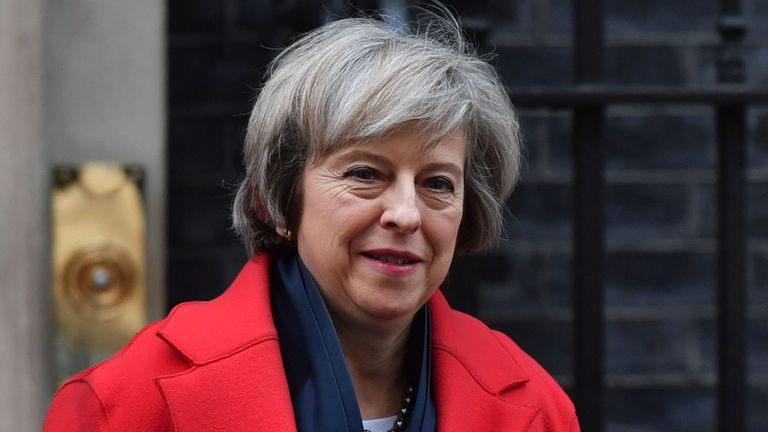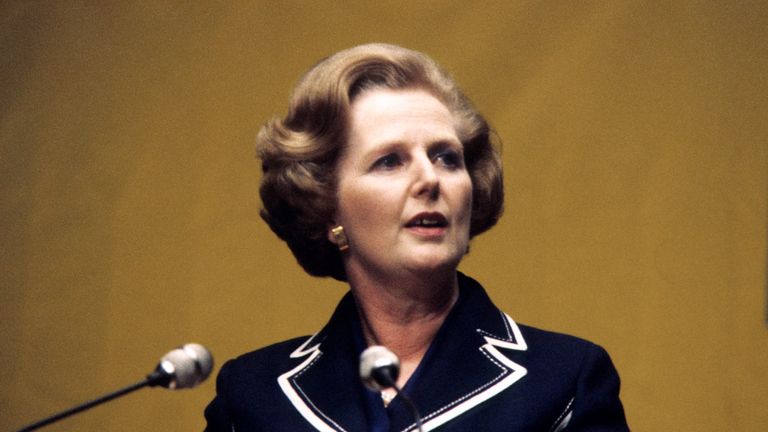PM harnessing the Brexit revolution to change party and the country
Theresa May's plans may sound bold but actual policies are still thin on the ground, says Sky's Faisal Islam.
Monday 9 January 2017 17:29, UK
The Prime Minister's ambitions have accelerated considerably over the festive period.
Her plan is not just about Brexit but a "new philosophy" for Britain as a whole.
"This Government has a plan, not simply to manage our withdrawal from the European Union, but to take this opportunity to fundamentally change Britain for the better," .
At its heart is her conception of the Conservative Party and its history. It has always been a coalition, in recent decades dominated by free market liberals and cultural conservatives.
But her speech, in theory, suggests that Brexit marks a turning-point in that the free market liberals are now in decline.
Liberalism and free markets alone do not offer solutions that governments need to offer in a new age of economic uncertainty.
"Everyday injustices" afflicting working families are as important as "obvious injustices" such as extreme poverty and homelessness affecting the very poorest.
"This means a government rooted not in the laissez-faire liberalism that leaves people to get by on their own, but rather in a new philosophy that means government stepping up," she said today.
So as Philip Blond, the Red Tory political philosopher seen in Downing Street in recent weeks, suggested today, the "Sharing Society" is in fact the Big Society plus the State.
It feels a long way from Margaret Thatcher's famous interview with Woman's Own where she proclaimed "there is no such thing as society".
Mrs May criticised the "cult of individualism" in defending her comments that "citizens of the world" were "citizens of nowhere".
This is quite some new direction for a Conservative Party elected on David Cameron's 2015 manifesto.
Steve Hilton, his former top Number 10 adviser, said Mrs May "has no mandate for anything except leaving the EU. If she has an agenda, call an election".
So she has to win an argument in her party on this agenda. If she wants to make controversial reforms that were not in the 2015 manifesto, will the party follow suit?
But she also has to get these reforms through Parliament - something that seems tricky even for the most advanced of her plans, lifting the statutory ban on new grammar schools.
Ultimately, she argues, if her "centre ground" and "mainstream" brand of politics does not deal with the "burning injustices" of there being "one rule for the rich and powerful and another for everyone else" then the politics of division and despair from the "hard-left" and "far-right" will step forward.
So that is the philosophy. A stronger State, a refocusing of state support on the "getting by" rather than the very poorest.
A harnessing of the Brexit revolution to change her party and the country.
It sounds bold, but the acid test will be actual policies - they are still thin on the ground.






